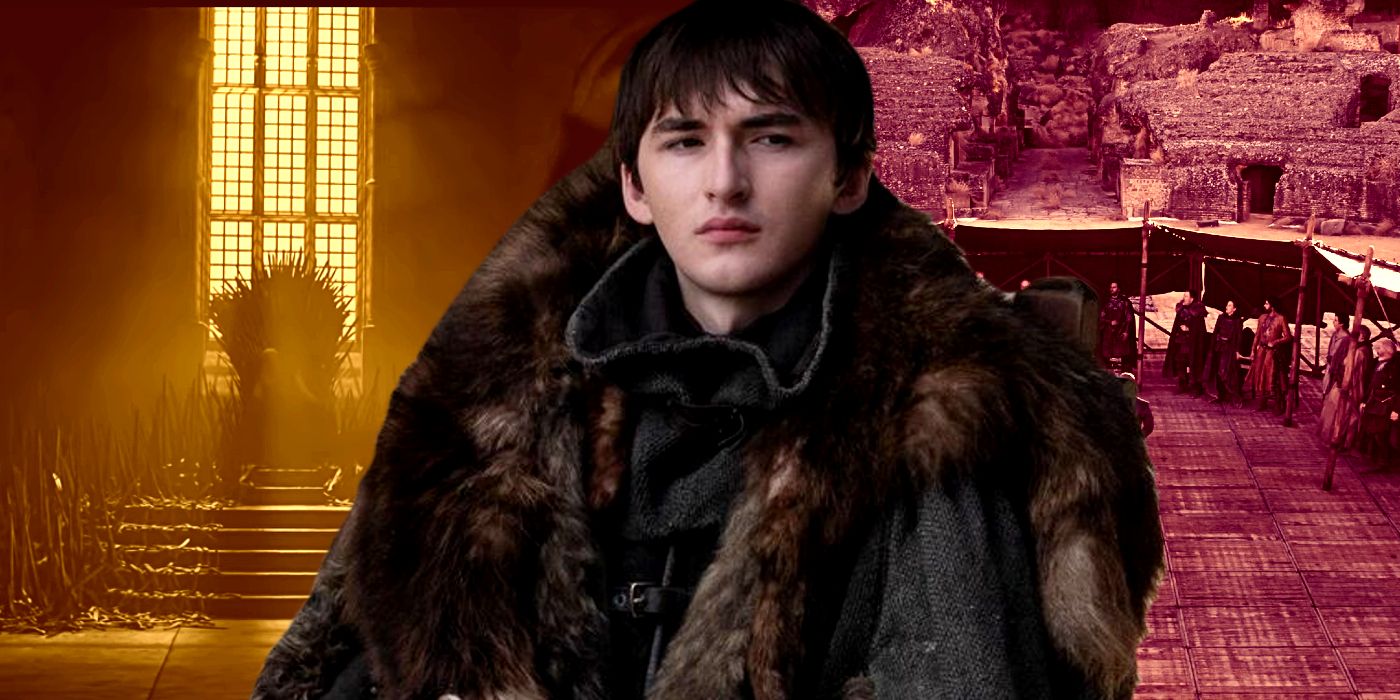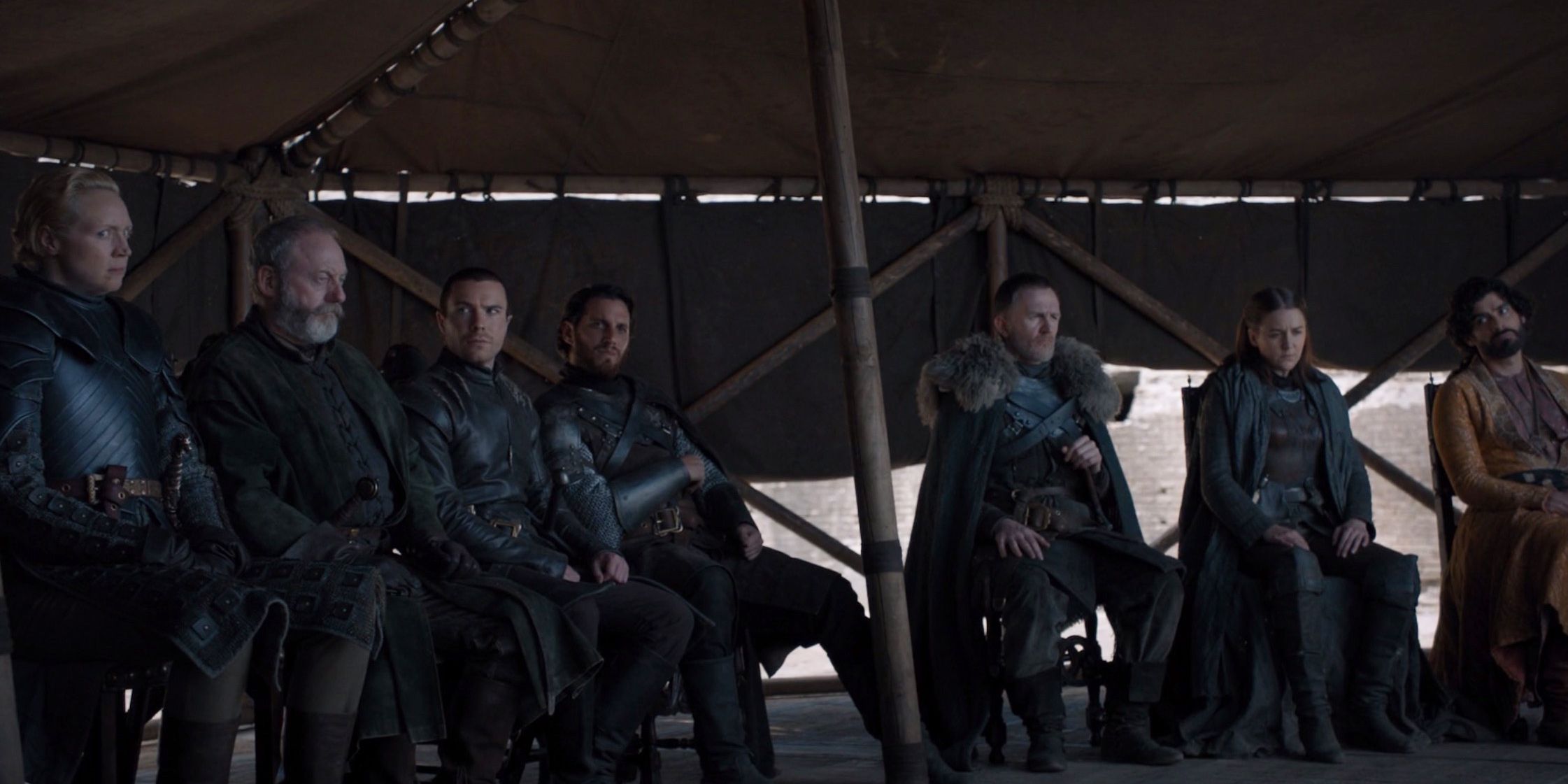Bran becoming King of Westeros was one of the most controversial parts of Game of Thrones' ending, but prequel show House of the Dragon can better visualize and contextualize what the moment ought to have looked like. Across all eight seasons of Game of Thrones, the question of who would win the Iron Throne in the end was one that provided the most speculation and fan theories. Would Daenerys Targaryen take what she believed to be rightfully hers? Would Jon Snow claim it, despite not wanting it? Could it be a left-field contender, like Gendry?
In the end, Game of Thrones' series finale gave one of the most surprising answers, with Bran Stark taking the (no-longer-Iron) Throne and becoming Westeros' new King. The process to get to that point was a so-called Great Council, an assembling of the major Lords and Ladies of Westeros to vote on the new ruler. In Game of Thrones season 8, it was a chance to see some familiar, long-missing faces, although the actual mechanics of what happened left something to be desired.
In part because so many characters had died, but also for the ease of making the scene work, the Great Council that elected Bran as King in Game of Thrones season 8 wasn't so great after all, with fewer than 20 Lords and Ladies in attendance to pass the judgment. For such a momentous decision, it was somewhat underwhelming, especially given previous precedent for Great Councils in George R.R. Martin's A Song of Ice & Fire history, which is something House of the Dragon can show on screen. While its main story doesn't include a Great Council - though one is mooted during the Dance of the Dragons, the Civil War that will at the core of the show - it could use flashbacks to Viserys I Targaryen becoming King, which was via a Great Council that lived up to its name.
After the death of King Jaehaerys I's heir, great Lords from across Westeros were called to discuss the succession of the throne and who should ultimately replace Jaehaerys. Held at Harrenhal, and in stark contrast to the one seen in Game of Thrones season 8, around a thousand lords attended, some staking out a place for months, with the actual deliberations lasting weeks as numerous contenders for the crown were deliberated. It was a momentous occasion that truly saw a gathering of everyone important (and not important) in Westeros, that showed just how the system could work, as well as highlighting its flaws. It's the kind of scene that helps to highlight of politics of Westeros, its laws of succession, and issues within those, which, done right, could be fascinating on screen.
The Great Council took place in 101 AC, which is well before the main story of House of the Dragon takes place. However, the moment is a defining one for the events of the Dance of the Dragons - not only does it put Viserys on the Iron Throne, but it establishes pacts, rivalries, and bitter feelings that will play out in the show. House of the Dragon is seemingly incorporating multiple timelines, with younger versions of characters being cast alongside older ones, so a flashback, perhaps early on, to 101 AC aren't out of the question.
Similarly, after the Dance of the Dragons, another Great Council of sorts is held in 136 AC, this time to decide the regents before Aegon III came of age and assumed power. Again, it was a huge gathering of Westerosi Lords, which could further show what a Great Council really looks like. Game of Thrones' Great Council choice was understandable, although there would've been many Lords and Ladies still in Westeros at the time who could have attended even in the background; it made the scene feel lesser and Westeros feel smaller, which in turn didn't help the new method of choosing a ruler land as well, which House of the Dragon can do the opposite of.


